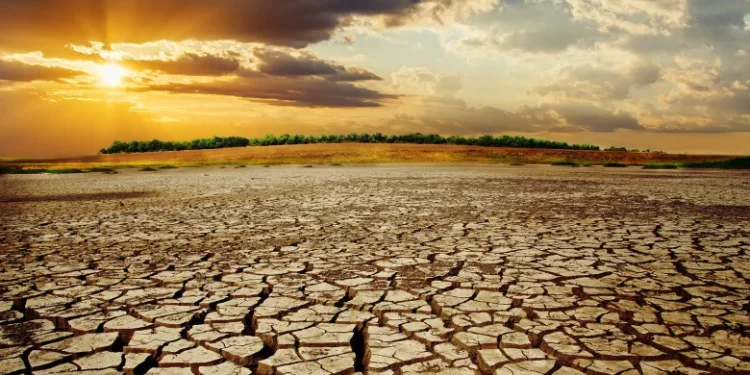Climate change and farming: Economists warn more needs to be done to adapt in sub-Saharan Africa
Sub-Saharan African countries strongly rely on the agricultural and forestry sectors. Agriculture contributes up to 60% of some countries’ gross domestic product. But the sector is highly vulnerable to climate change because it relies heavily on climatic factors. This vulnerability is particularly marked in the region because of its slow rate of technological advancement.
As agricultural economists we carried out a review of the literature on the climate change challenge for agriculture in sub-Saharan Africa. We explored the distribution of various climatic factors (like rainfall, temperature and extreme weather events) across the region, and their impact on agriculture. We also investigated what rural farmers were doing to respond to climate change.
We found that the implications of climate change for agricultural and economic development are diverse across the region. It is difficult to predict exactly how climate change will affect agriculture and economic development.
But is is clear that sub-Saharan African countries like Nigeria, South Africa, Botswana, and Kenya are extremely vulnerable to climate change.
Farmers are not using effective adaptation strategies. These include planting drought tolerant crop varieties, and conserving water and soil. Limited resources and infrastructure have held them back. Mitigation programmes such as carbon pricing, water management, recycling, afforestation and reforestation have had limited impact. Poor climate change awareness, unstable government policies and political instability have hindered the programmes.
The impact of climate change on vulnerable households will be extreme if adequate measures are not taken in time. Research suggests that countries such as Togo, Nigeria, Congo and Mali will record more agricultural losses without adaptation. Governments, international organisations, local communities and other stakeholders need to develop strategies to address the diverse needs of rural farmers in sub-Saharan Africa.
What our review found
The studies we reviewed indicated that patterns of rainfall, temperature and extreme weather events have changed significantly in the region. This trend is not expected to change in future decades.
Sub-Saharan Africa experiences diverse rainfall patterns. Annual rainfall can be as low as 100 millimetres in arid areas in the Sahel and parts of east Africa and over 500 millimetres in tropical areas in central and western Africa.
Temperatures can often exceed 40°C (104°F) during the hottest months. Over the last century, the mean temperature has increased by about 0.74°C.
The region experiences various extreme weather events, including droughts, floods and heatwaves. Coastal areas, especially in the eastern and southern regions, experience cyclones or tropical storms.
Many studies show that these conditions affect agricultural production and society in a number of ways:
- Yield reduction: Climate change reduces crop yield. Higher temperatures, changing rainfall patterns, droughts and floods affect harvests. For instance, farmers in Nigeria have seen lower yields caused by new pests, disease outbreaks and the drying up of rivers.
- Food insecurity: Poor agricultural productivity often leads to food insecurity, which affects both rural and urban populations. Lower crop yields can cause prices to rise. Reduced access to food can worsen malnutrition and hunger.
- Income loss and poverty: Lower agricultural output affects the income of smallholder farmers. This can increase poverty levels and economic vulnerability. We found a decline in cereal production over the last decade in Ghana, Congo and South Africa.
- Decreased livestock productivity: Higher temperatures, changes in forage availability, and water scarcity are a challenge for livestock farmers. These make livestock prone to diseases and death. Farmers incur high costs to immunise and treat animals.
- Vulnerability of smallholder farmers: These farmers don’t always have the resources and capacity to adapt to the impact of climate change.
Recommendation and policy implications
The review of studies showed that sub-Saharan Africa could develop economically if rural farmers took more effective measures against climate change.
We made the following recommendations to protect farmers from the impact of climate change:
- Strengthen institutions for policy development and implementation. Coordinating climate change adaptation efforts and sustainable agricultural practices improves farm productivity.
- Improve rural infrastructure. This would promote economic growth, reduce poverty and make rural communities more resilient.
- Initiate public welfare programmes. Improved access to finance, markets, education and climate information would enhance social protection.
- Establish more forest plantations and maintain existing ones. They would help absorb the impact of climate change on agriculture and promote economic development.
- Afforestation and reforestation can also help absorb carbon and conserve biodiversity.








